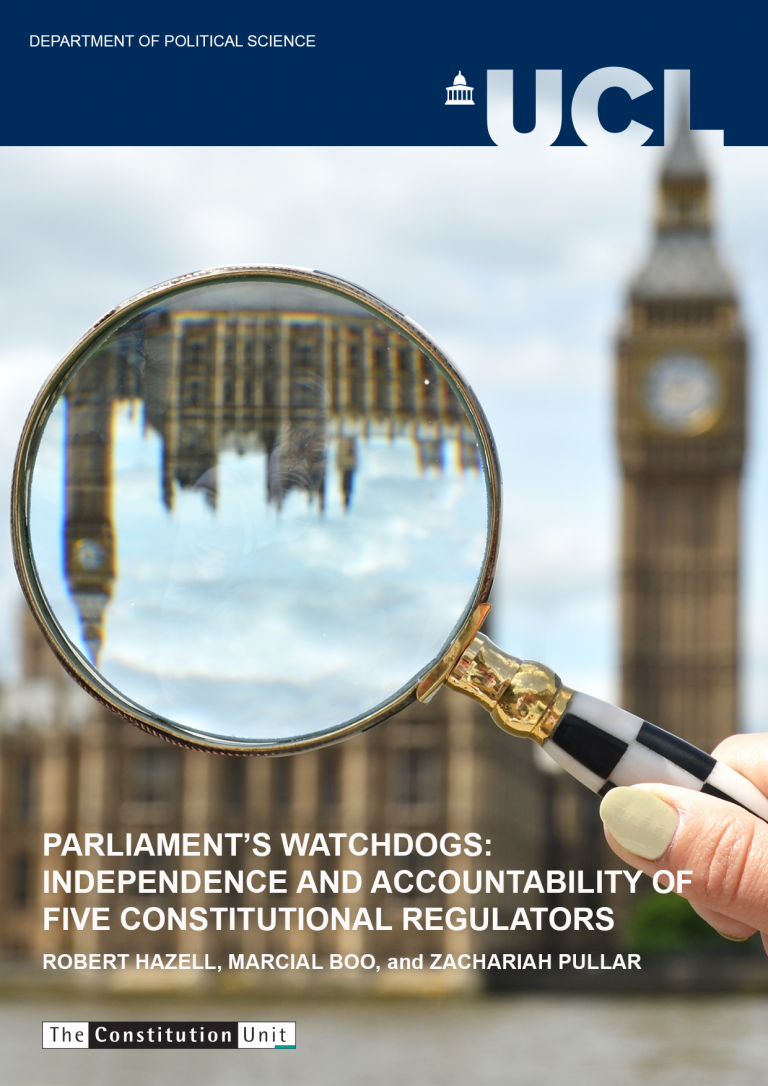NEW REPORT: Parliament's watchdogs
12 July 2022
The Constitution Unit publishes the results of a landmark investigation into the independence and accountability of parliament’s watchdogs.

The Constitution Unit today publishes a new report on the role of constitutional watchdogs in safeguarding democracy. The report explores the inherent tension in the need to maintain the independence of watchdogs from the politicians and democratic processes they regulate, while optimising their accountability to parliament, as public bodies paid for out of public funds. Drawing on an extensive study of five such watchdogs, this report is the first detailed analysis of the optimal institutional design features to best maintain this delicate balance between independence and accountability.
The last 30–40 years have seen the creation of a number of independent bodies and officers, known as ‘watchdogs’, intended to oversee important aspects of the work of politicians. Their functions range from having oversight of the payment and conduct of MPs, safeguarding electoral integrity, and regulating public appointments. Collectively, these watchdogs try to ensure that rules designed to ensure fairness and integrity in the political process are applied consistently and impartially.
The report studies five prominent watchdogs which have key functions in maintaining electoral integrity, and overseeing politicians’ pay and behaviour. These are the Electoral Commission; the Boundary Commission for England; the Independent Parliamentary Standards Authority; the Parliamentary Commissioner for Standards; and the Committee on Standards in Public Life. The authors make a series of recommendations as to how the independence of these watchdogs can be strengthened without compromising their accountability. These recommendations include:
- Secure legal status for watchdogs, with protection from arbitrary abolition
- Merit-based appointment, with appointments for a single, non-renewable term
- Security of tenure, ensuring that dismissals happen only in cases of incapacity or misconduct
- Adequate funding to fulfil their functions, and protection against their functions and powers being arbitrarily changed
- Authority to initiate their own inquiries, and to publish their reports in their own time
- Where watchdogs are appointed or funded by a committee, the committee should not have a single party majority and should also include lay members.
Conversely, watchdogs should demonstrate their accountability by:
- Explaining and justifying decisions when called upon to do so, including, for example, through select committee appearances
- Ensuring transparency, by publishing board minutes and other papers, and being subject to freedom of information requests
- Ensuring mechanisms to challenge watchdogs’ decisions by appeal or through judicial review
- Scrutiny of watchdogs’ budgets and auditing their expenditure.
 Close
Close

